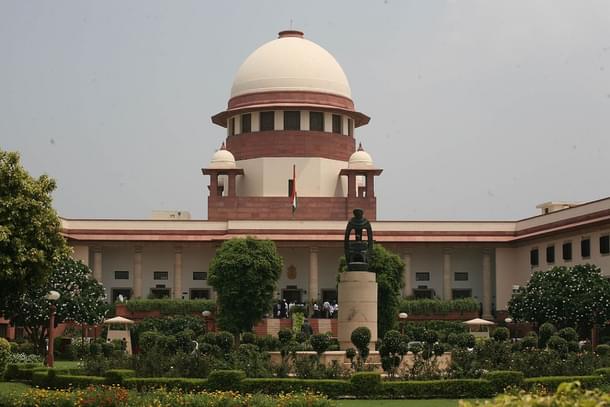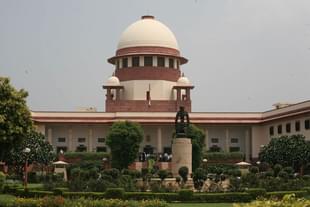Politics
Punjab Governor Vs AAP Govt: SC Slams CM Mann, Governor Purohit Over Spat On Budget Session
Swarajya Staff
Mar 01, 2023, 08:46 AM | Updated 08:46 AM IST
Save & read from anywhere!
Bookmark stories for easy access on any device or the Swarajya app.


The Supreme Court on Tuesday (28 February) expressed displeasure over actions of both Punjab Chief Minister Bhagwant Mann and state's Governor Banwarilal Purohit.
While hearing the Punjab government's plea challenging refusal of Governor to summon State Assembly's Budget session, the apex court remarked that the tone and tenor used by the Punjab CM in his tweet as well as letter to Purohit "left much to be desired", reports Lawbeat.
A bench headed by Chief Justice DY Chandrachud, at the outset, took note of the submission of Solicitor General Tushar Mehta, appearing for the Governor, that the plea filed by the Punjab government does not survive in view of the governor's decision to convene the Assembly on 3 March.
Representing the AAP government, senior advocate A M Singhvi accused the Governor of having “hijacked the Constitution,” while Solicitor General Tushar Mehta said the dispute had its genesis in Purohit seeking information on certain administrative matters from the CM and the latter using “street language” in reply.
Stressing that the Governor and the Chief Minister are constitutional functionaries with specified roles and obligations earmarked by the Constitution, the apex court observed that there was a dereliction of constitutional duty by both.
Not furnishing the information sought by the governor would be a dereliction of the chief minister's constitutional duty which would allow the governor to not do his constitutional duty to summon the budget session, it said.
The court also said there was no occasion for the Punjab governor to seek legal advice on whether to convene a Budget session as he is bound by the aid and advice of ministers.
The SC said that “political differences in a democratic polity are acceptable and have to be worked out with a sense of sobriety and maturity without allowing the discourse to degenerate into a race to the bottom”.
(With inputs from PTI)





